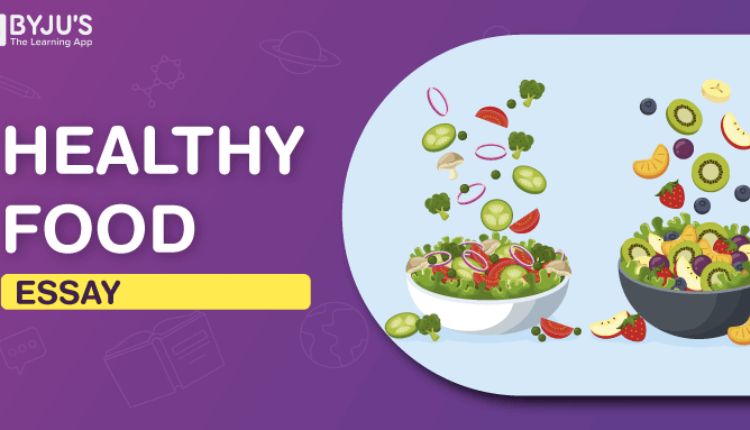In today’s fast-paced world, healthy life wellhealthorganic prioritizing our health has become more important than ever. With the abundance of processed foods, environmental pollutants, and sedentary lifestyles, maintaining good health can seem like a daunting task. However, by embracing wellhealthorganic practices, we can take proactive steps towards achieving optimal health and wellness.
Embracing a Holistic Approach to Health
Living a well-organic life goes beyond just what we eat. It encompasses every aspect of our lifestyle, from the food we consume to the products we use and even our mindset. By adopting a holistic approach to health, we can address the root causes of illness and promote overall well-being.
Nourishing Your Body with Organic Foods
Switching to an organic diet is one of the first steps towards achieving a healthy life. Organic foods are free from harmful pesticides, hormones, and genetically modified organisms (GMOs), making them a safer and more nutritious choice. By incorporating organic fruits, vegetables, and whole grains into your diet, you can provide your body with the essential nutrients it needs to thrive.
Creating a Chemical-Free Environment
In addition to organic foods, it’s essential to minimize exposure to harmful chemicals in our environment. This includes opting for organic skincare products, household cleaners, and building materials whenever possible. By reducing our exposure to toxins, we can support our body’s natural detoxification processes and promote overall health.
The Benefits of wellhealthorganic Living
The benefits of embracing a well-organic lifestyle are vast and far-reaching. From improved physical health to enhanced mental clarity, making the switch to organic living can have a profound impact on every aspect of our lives.
Improved Physical Health
Organic foods are packed with essential vitamins, minerals, and antioxidants that support optimal health. By eliminating exposure to harmful chemicals and additives, organic living can reduce the risk of chronic diseases such as heart disease, diabetes, and cancer.
Enhanced Mental Well-being
In addition to physical health benefits, wellhealthorganic living can also positively impact mental well-being. Studies have shown that organic foods may contain higher levels of mood-stabilizing nutrients such as omega-3 fatty acids and serotonin precursors, which can help reduce stress and anxiety.
Support for the Environment
Choosing organic products isn’t just beneficial for our health; it’s also better for the environment. Organic farming practices prioritize soil health, water conservation, and biodiversity, leading to healthier ecosystems and reduced pollution.
Incorporating wellhealthorganic Practices into Your Lifestyle
Transitioning to a well-organic lifestyle may seem overwhelming at first, but with a few simple changes, you can start reaping the benefits of organic living today.
Start Small
Instead of trying to overhaul your entire lifestyle overnight, start by making small changes one step at a time. Whether it’s swapping out conventional produce for organic options or replacing chemical-laden household cleaners with natural alternatives, every small change counts towards a healthier life.
Educate Yourself
Take the time to educate yourself about the benefits of wellhealthorganic living and the potential risks associated with conventional products. By arming yourself with knowledge, you can make informed decisions that align with your health and values.
Prioritize Self-Care
Finally, don’t forget to prioritize self-care as part of your well-organic lifestyle. Make time for activities that nourish your body, mind, and soul, whether it’s practicing yoga, spending time in nature, or simply enjoying a quiet moment of reflection.
FAQs (Frequently Asked Questions):
Is it expensive to switch to an organic lifestyle?
- Switching to organic living doesn’t have to break the bank. While organic products may be slightly more expensive upfront, the long-term health benefits far outweigh the costs.
Are organic foods really healthier?
- Yes, organic foods are typically higher in nutrients and free from harmful chemicals found in conventional products. Studies have shown that organic fruits and vegetables contain higher levels of antioxidants and essential vitamins.
Can I still eat out if I’m living a well-organic lifestyle?
- While it may be more challenging to find organic options when eating out, many restaurants now offer organic menu items. Additionally, you can prioritize restaurants that use locally sourced, sustainable ingredients.
How can I afford organic products on a tight budget?
- Look for ways to stretch your budget, such as buying in bulk, shopping seasonally, and joining a local co-op or community-supported agriculture (CSA) program. You can also prioritize organic purchases for the foods you consume most frequently.
Are there any risks associated with organic living?
- While organic living is generally considered safe and beneficial, it’s essential to be mindful of potential allergens and contaminants. Always read labels carefully and choose certified organic products whenever possible.
Can organic living help me lose weight?
- While organic foods can support overall health and weight management, there’s no guarantee that simply switching to organic products will result in weight loss. However, by prioritizing nutrient-dense foods and reducing exposure to harmful chemicals, you can support your body’s natural weight management processes.
Conclusion:
In conclusion, embracing a well-organic lifestyle is a powerful way to promote health, wellness, and sustainability. By prioritizing organic foods, products, and practices, we can support our own well-being while also contributing to a healthier planet for future generations. Whether you’re just starting your organic journey or looking to deepen your commitment, remember that every small step towards wellhealthorganic living makes a meaningful difference.
